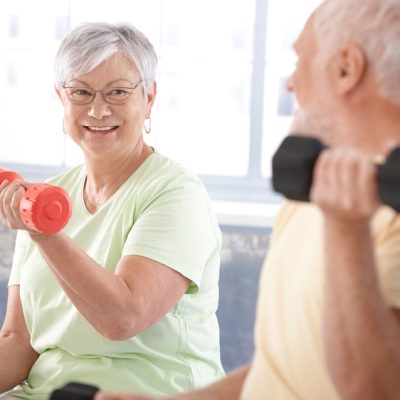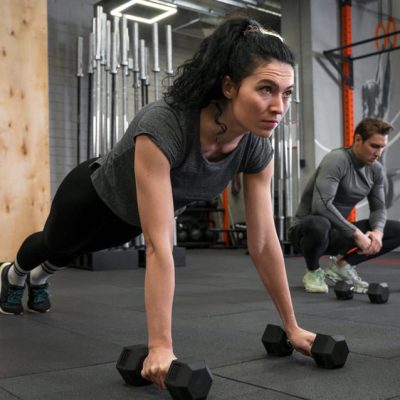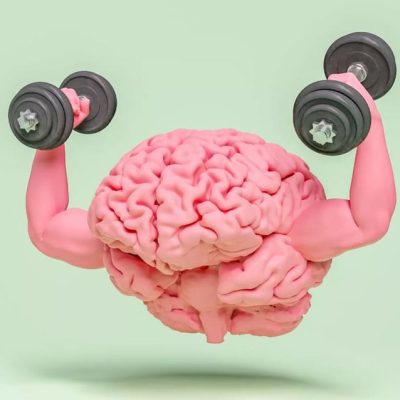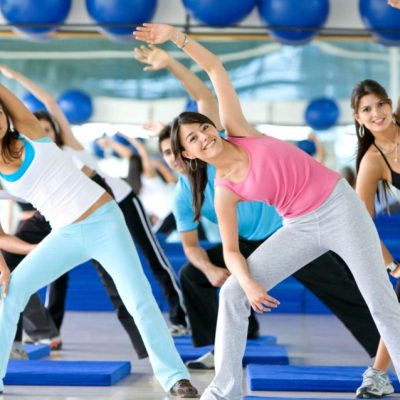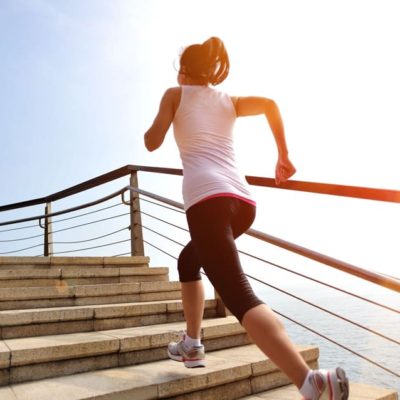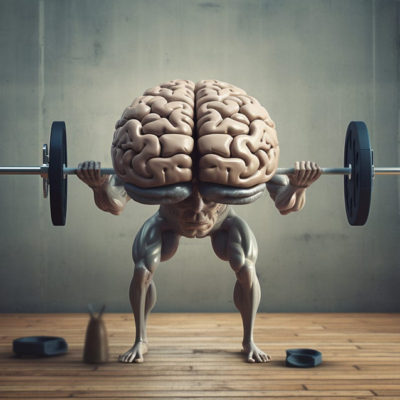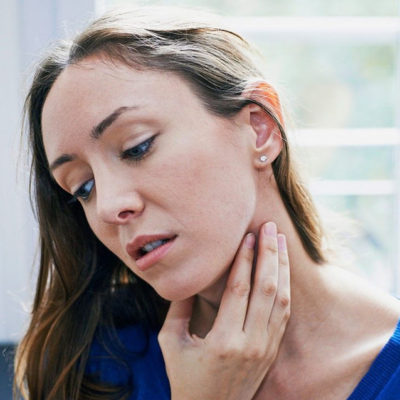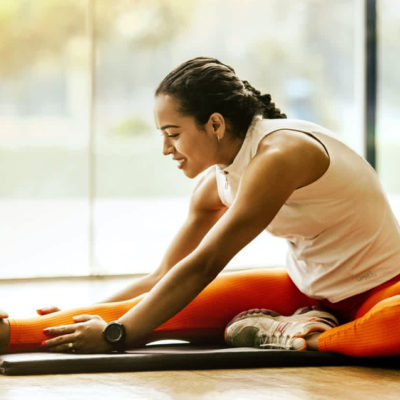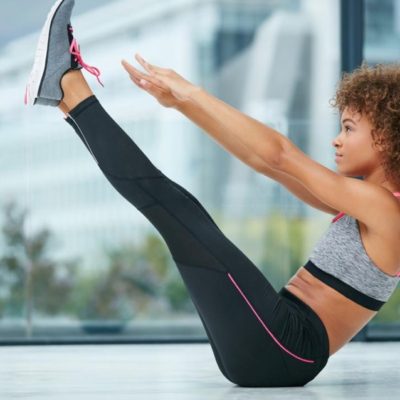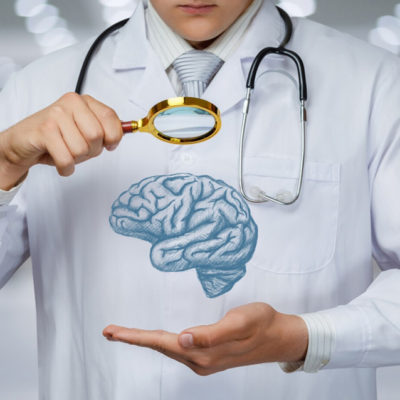Researchers at the University of Jyväskylä in Jyväskylä, Finland, set out to answer this question and uncovered a surprising finding: Moderate physical activity had the most significant positive effect on longevity, reducing mortality by 7% over a 30-year period. Interestingly, higher levels of physical activity did not confer additional mortality benefits. The study was … [Read more...]
Women Health

Five Minutes a Day Eccentric Exercise can Improve Your Life
As little as five minutes a day of eccentric exercise could offer significant health benefits to those living a stagnant lifestyle, researchers from Edith Cowan University (ECU) found. The study, led by Dr Benjamin Kirk and Professor Ken Nosaka in ECU's School of Medical and Health Sciences, evaluated the effects of a five-minute a day, home-based bodyweight eccentric … [Read more...]
Researchers Debunk Common Belief That Women Get Better Muscles by Timing Their Workouts to Their Menstrual Cycles
New research from kinesiologists at McMaster University is challenging the internet belief that timing resistance training to specific phases of the menstrual cycle boosts the body's ability to build muscle and strength. The researchers have shown that exercising at various points in the cycle had no impact -- positive or negative -- on the synthesis of new muscle … [Read more...]
Innovative Program helps Seniors Manage Stress
A Canadian research team has released the results of a study on stress resilience in seniors. Their findings were published on January 5, 2025 in Frontiers in Psychology.The study involving 170 seniors with an average age of 76 found that O'stress, a six-week stress management program, had beneficial effects on the emotional health of participants. Those who followed the … [Read more...]
Exercise Improves Brain function, Possibly Reducing Dementia Risk
A study led by scientists at Rutgers University-New Brunswick has shown that specialized cells involved in how the body responds to insulin are activated in the brain after exercise, suggesting that physical activity may directly improve brain function. A study, published in Aging Cell, a journal focused on the biology of aging, indicates that therapies targeting this … [Read more...]
Electrifying Your Workout can Boost Muscles Mass, Strength
If building strength and muscle mass is part of your New Year's Resolution, you may want to add a new routine to your workout. Neuromuscular electrical stimulation (NMES), or electrical muscle stimulation for short, uses electrical currents to contract muscles. The stimulation devices are easy to use and widely available on the market, according to Sudip Bajpeyi, Ph.D., a … [Read more...]
Aerobic Exercise: A Powerful Ally in Fight Against Alzheimer’s
Regular aerobic exercise could significantly reduce disease markers associated with Alzheimer's, new research led by scientists at the University of Bristol (UK) and the Federal University of São Paulo (Brazil) has found. The findings provide new hope in the battle against this devastating disorder. Published in the journal Brain Research, the study highlights how physical … [Read more...]
Study Finds Physical Activity Reduces Chronic Disease Risk
University of Iowa researchers are recommending all patients be surveyed about their physical activity levels, after a new study underscores the link between physical activity and chronic disease. The study, led by Lucas Carr, associate professor in the Department of Health and Human Physiology, examined responses from more than 7,000 patients at University of Iowa Health … [Read more...]
Study reveals that sleep prevents unwanted memories from intruding
The link between poor sleep and mental health problems could be related to deficits in brain regions that keep unwanted thoughts out of mind, according to research from the University of East Anglia (UEA). Sleep problems play an important role in the onset and maintenance of many mental health problems, but the reason for this link is elusive. A new study, published in … [Read more...]
Sport or Snack? How our Brain Decides
Should I go and exercise, or would I rather go to the café and enjoy a delectable strawberry milkshake? Until now, what exactly happens in our brain when we make this decision has been a mystery to science, but researchers at ETH Zurich have found the solution. They deciphered which brain chemical and which nerve cells mediate this decision: the messenger substance orexin and … [Read more...]
Swipe up! Health apps deliver real results en masse
In a new study, researchers synthesised data from 206,873 people across 47 studies, finding that digital health tools -- like mobile apps, websites, and text messages -- can significantly improve health and wellbeing by keeping you active, boosting steps, and improving your diet and sleep. Specifically, electronic and mobile health interventions can help people … [Read more...]
Every Breath You Take: Study Models the Journey of Inhaled Plastic Particle Pollution
The results of the modelling, published in the journal Environmental Advances, have pinpointed hotspots in the human respiratory system where plastic particles can accumulate, from the nasal cavity and larynx and into the lungs. Dr Saha said evidence was mounting on the significant impact of nano and microplastics on respiratory health and the UTS study would provide … [Read more...]
Climb Stairs to Live Longer
Climbing stairs is associated with a longer life, according to research presented today at ESC Preventive Cardiology 2024, a scientific congress of the European Society of Cardiology (ESC).1 "If you have the choice of taking the stairs or the lift, go for the stairs as it will help your heart," said study author Dr. Sophie Paddock of the University of East Anglia and … [Read more...]
Cold Water Swimming Improves Menopause Symptoms
Menopausal women who regularly swim in cold water report significant improvements to their physical and mental symptoms, finds a new study led by UCL researchers. The research, published in Post Reproductive Health, surveyed 1114 women, 785 of which were going through the menopause, to examine the effects of cold water swimming on their health and wellbeing. The findings … [Read more...]
New Model Predicts How Shoe Properties Affect a Runner’s Performance
A good shoe can make a huge difference for runners, from career marathoners to couch-to-5K first-timers. But every runner is unique, and a shoe that works for one might trip up another. Outside of trying on a rack of different designs, there's no quick and easy way to know which shoe best suits a person's particular running style. MIT engineers are hoping to change that with … [Read more...]
Researchers Discover a New Role for a Protein that helps form Memories
The protein normally performs necessary housekeeping in the brain's hippocampus by working as part of a larger protein complex called the proteasome to destroy other proteins. But researchers in the College of Agriculture and Life Sciences' School of Animal Sciences recently noticed this protein, called RPT6, behaving in a previously undetected way. "We found that RPT6 is … [Read more...]
Physical Exercise Boosts Motor Learning and Remembering What one has Learned
Before a violinist tunes their instrument or surgeon stands at the training table to learn the skills needed for a new symphony or surgical procedure, they might consider heading out for a bike ride or run. Once they've practiced the new skill, there's good reason to put on their workout attire again. Indeed, being physically active and elevating one's heart rate has the … [Read more...]
Different Pain Types in Multiple Sclerosis can Cause Difficulty Ataying Active
For patients with multiple sclerosis, a regular exercise routine is important for managing symptoms. Due to different causes of chronic pain though, physical exercise can be more difficult for some. Research published in the Journal of Pain from the University of Michigan found that widespread pain with nociplastic features, also known as WPNF, can make engaging in physical … [Read more...]
Walking More Than Five Flights of Stairs a Day can Cut Risk of Heart Disease by 20 Percent, Study Says
Forget walking 10,000 steps a day. Taking at least 50 steps climbing stairs each day could significantly slash your risk of heart disease, according to a new study from Tulane University. The study, published in Atherosclerosis, found that climbing more than five flights of stairs daily could reduce risk of cardiovascular disease by 20%. Atherosclerotic cardiovascular … [Read more...]
How Sleep Deprivation Can Harm The Brain
Not only does a lack of sleep make you feel awful, research has shown it impairs the brain. What's more, sleep loss over long periods can even increase risk for Alzheimer's and other neurological diseases. Researchers want to understand how sleep deprivation causes this harm. In a new study in ACS' Journal of Proteome Research, a team working with mice has identified a … [Read more...]
Yeast Studies Show That Diet in Early Life Matters for Lifelong Health
Researchers at the Babraham Institute are proposing an alternative link between diet and ageing based on studies in yeast. Dr Jon Houseley and his team have published their experiments, showing that healthy ageing is achievable through dietary change without restriction by potentially optimising diet, and that ill-health is not an inevitable part of the ageing … [Read more...]
Adults With Multiple Kids Engage in Significantly Less Vigorous Physical Activity
Physical activity is a crucial component of a healthy lifestyle, yet only one in three adults in the United States meets the weekly recommendation for exercise. The struggle to stay fit is complicated even further for parents, who often prioritize their children's needs over their own. A new study, titled "The Association between Adult Sport, Fitness, and Recreational … [Read more...]
New Study Shows How Marathon Running Affects Different Foot Muscles
Foot muscles are generally categorized as either intrinsic or extrinsic muscles. While intrinsic muscles originate and insert within the foot, extrinsic muscles originate in the lower leg and insert into the foot via the ankle. Both muscle groups help stabilize the medial (inner) longitudinal arch of the foot. Although some studies have linked muscle swelling caused by … [Read more...]
Exercise Seems to Protect Against Major Brain Hemorrhage
Regular physical activity and exercise may reduce bleeding in individuals with intracerebral hemorrhage, a University of Gothenburg study shows. The researchers emphasize the importance of physical activity to protect the brain. The study, published in the journal Stroke and Vascular Neurology, analyzed data on 686 people treated for intracerebral hemorrhage at Sahlgrenska … [Read more...]
Physical Activity can Help Mental Health in Pre-teen Years
Engaging in regular moderate to vigorous physical activity at age 11 was associated with better mental health between the ages of 11 and 13, the study found. Physical activity was also associated with reduced hyperactivity and behavioural problems, such as loss of temper, fighting with other children, lying, and stealing, in young people. Researchers from the Universities … [Read more...]
Study Reveals New Understanding of How Androgen Therapy Affects Breast Tissue
Transgender men who were assigned female at birth and identify today as male may take hormones called androgens to induce physical changes that help them align their physical appearance with their identified gender. Androgens such as testosterone are involved primarily in the development of male traits, although females also produce androgens. Molecular changes observed in … [Read more...]
Combining Time-Restricted Eating and HIIT Improves Health Measures in Women with Obesity
Both time-restricted eating (TRE) and high-intensity interval training (HIIT) have been shown to improve cardiometabolic health in people who are overweight and at risk of serious disease. Now a randomized, controlled trial has tested whether combining these two approaches is more effective than either of them on their own. The results, publishing in the journal Cell Metabolism … [Read more...]
Scientists Chart How Exercise Affects The Body
Exercise is well-known to help people lose weight and avoid gaining it. However, identifying the cellular mechanisms that underlie this process has proven difficult because so many cells and tissues are involved. In a new study in mice that expands researchers' understanding of how exercise and diet affect the body, MIT and Harvard Medical School researchers have mapped out … [Read more...]
Promising Treatment For Dementia
Behavioural variant frontotemporal dementia (bvFTD) is a rapidly progressing destructive disease and can occur in people as young as 35 years of age. It is characterised by behavioural disturbances and personality changes and can be highly disruptive and distressing for both patients and their families. Currently there are no treatments or cures for bvFTD and typical survival … [Read more...]
How Migraine Pain Signals are Generated, and Blocked
An international team of researchers has discovered that Schwann cells -- which are abundant in the peripheral nervous system and create a protective sheath around nerve fibers -- play an essential role in migraine pain. Their study, conducted in mice and human Schwann cells and published in Nature Communications, illustrates how pain is signaled from within Schwann cells and … [Read more...]
- 1
- 2
- 3
- …
- 96
- Next Page »
